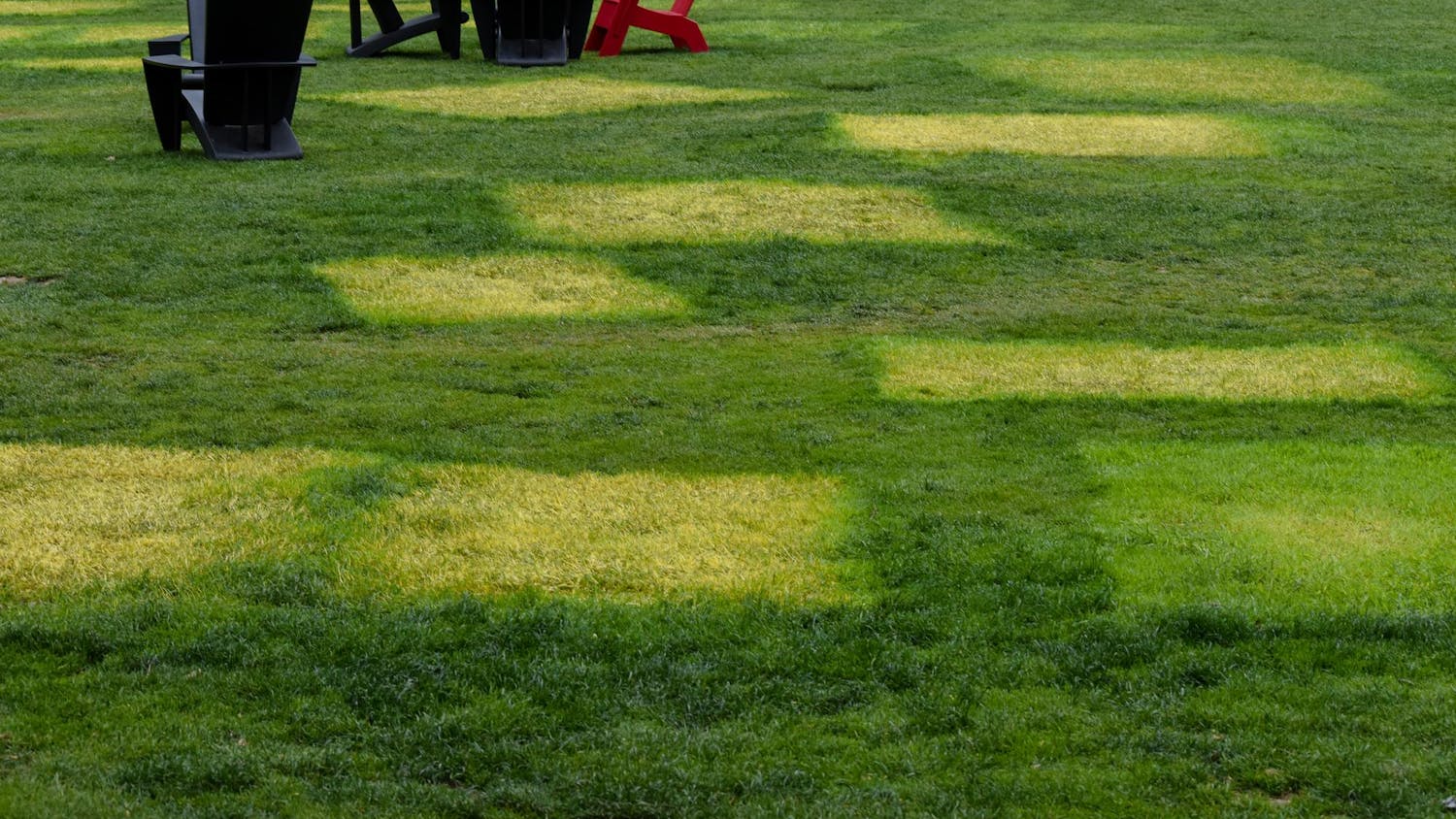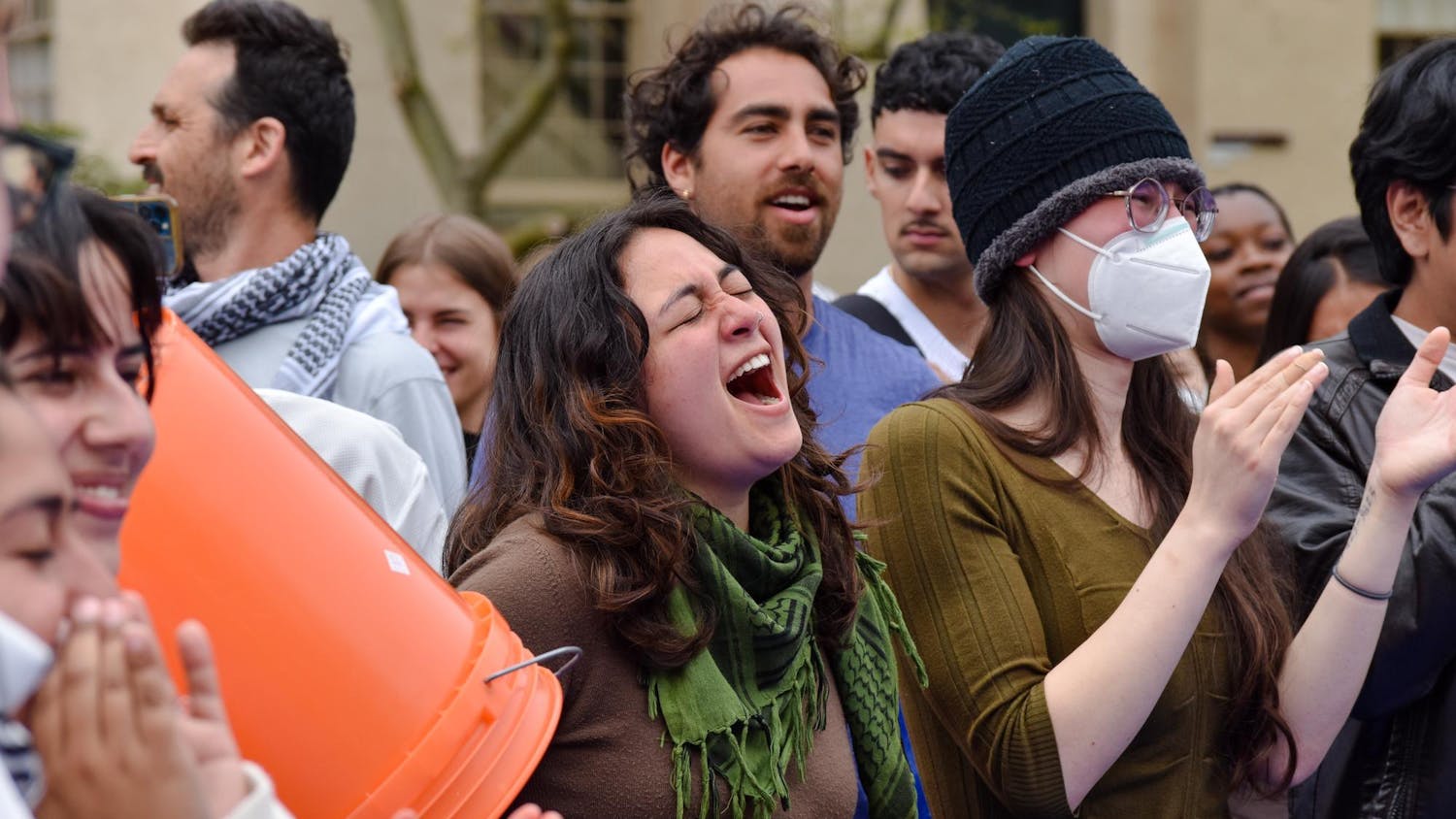Members of the Brown community, female and male, filled Salomon 101 Monday night for "An Evening with Gloria Steinem," a program featuring a screening of an HBO documentary about the feminist activist from the 1970s followed by a discussion between Steinem and President Ruth Simmons.
"If there is one thing you should be inspired by, it is that it is possible for one person to change the world for the better," said Lisa Quiroz, chief diversity officer and senior vice president of corporate responsibility at Time Warner Inc., who introduced the documentary "Gloria: In Her Own Words." Quiroz encouraged audience members to consider what their own contributions to the world might be
The screening began following the introduction, recounting the story of a woman who became the face of the feminist movement. Through a montage of interviews, old photos and current footage of Steinem the hour-long documentary portrayed Steinem as an accidental heroine.
"I was a freelance writer assigned to stories about food, babies... at my low point, textured stockings," Steinem said in the movie.
Steinem said she encountered sexual harassment, "but there was no word for it back then." The injustices she experienced in her own life propelled her to become involved in the women's liberation movement.
"Gloria: In Her Own Words" tracks the birth of this feminist movement and the evolution of its most recognizable spokeswoman.
"The hair was inspired by Hepburn," Steinem said in the film. "The big glasses were about hiding."
The documentary ended to applause and a standing ovation, and the lights rose on Steinem and Simmons sitting together on the stage.
"I don't even know what to say," began Simmons, to which Steinem replied,"How can you of all people say that? I did this whole event just to be up there with you!" In a media session preceding the event,,, Steinem listed Simmons as one of her current inspirations.
Steinem and Simmons then launched into a discussion about the current state of the women's movement.
"I was fascinated to hear someone say that women's issues are all talked out," Simmons said.
"It's part of obstruction and backlash," Steinem said. "The first stage of resistance is when people tell (you), 'You're crazy. This movement goes against nature.' In the second stage people tell you it's all over, nothing else needs to be done." Simmons also questioned how long it would take for women to have a serious voice in American politics.
"You can't be what you can't see," Steinem told the media before the event in response to a question about when the U.S. would have its first female president. "It's hard for women to imagine themselves as candidates- so we have to tell women 'You'd be a good candidate.' Also remember, it's not a passive question - when will it happen? It's an active question - when will we make it happen?"
The event's moment of highest energy came near the end of the discussion. In a question and answer session, a student asked Steinem about image, noting how perfectly coiffed her hair seemed throughout the movie. Steinem, who explained in the documentary how frustrating it was for her to have all of her hard work and accomplishments attributed to beauty alone, responded, "I just think we ought to look how we f--king well please."
The audience burst into cheers.
"I was going to ask you why you never ran for office, but now I see why. You wouldn't be able to say that," said Simmons, high-fiving Steinem and laughing.
The event, which was sponsored by the Pembroke Center for Teaching and Research on Women, ended with Simmons thanking Steinem and citing her courage and eloquent articulation of female rights.
"We changed the norm," Steinem said during the question and answer session. "Fewer women feel crazy when they don't fit the role of what women are supposed to be."
In the media session, Steinem also focused on this idea of freedom of expression.
"I was on Oprah with some students from Barnard and one of them put it perfectly. Women should have the freedom to do what they want," she said. "I guess the issues that would allow that to happen are freedom from violence, reproductive freedom and democracy in the family. The family is a microcosm for everything - for the streets, for politics."
Steinem also told the media that the women's movement today is stronger than before.
"It is infinitely bigger than it ever was in the '70s," she said. The reason you know me is because there was a few of us (in the '70s). Today there are at least as many people who self-identify as feminists as people who self-identify as Republicans."
When asked in the media session how best to get men involved in the feminist movement, Steinem said that the movement in part must eroticize equality. There is an idea that sexuality is about dominance and submission. Cooperation is a lot more fun."
Steinem also spoke generally on how to inspire movements. "You focus on where your experience and expertise are. But it often helps to start from the bottom. Trees do not begin at the top."




